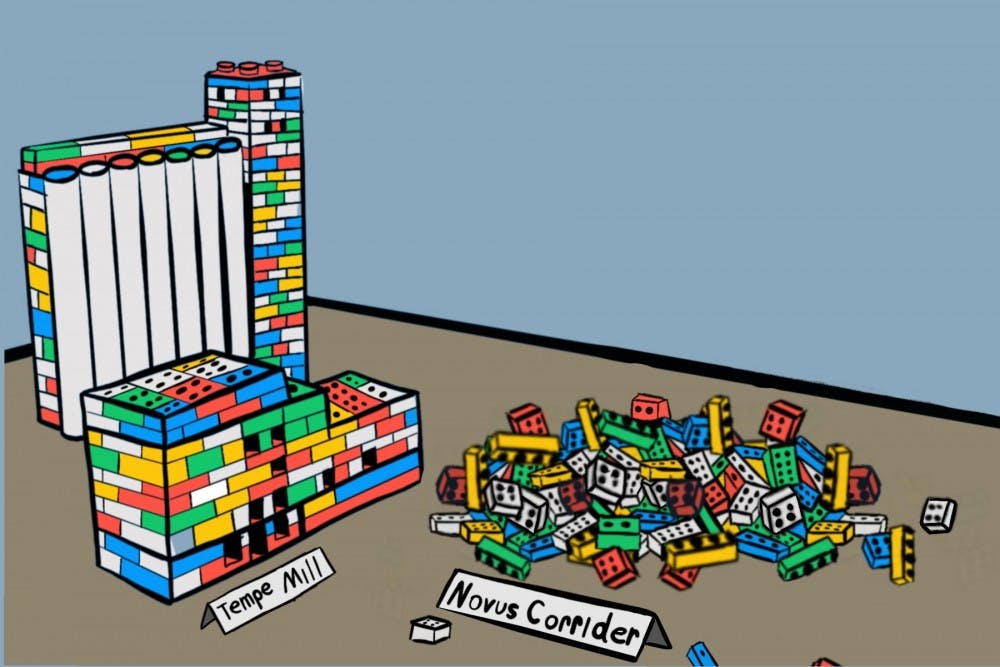Phoenix is one of the fastest-growing cities in the United States, according to recent data from the Census Bureau. With this rising population comes the need for newer and more efficient infrastructure, more residences and centers for innovative people to collaborate like those provided by Arizona State University.
All this innovation has led organizations like CEOs for Cities to come and learn from all the work Phoenix and Tempe are doing to create a city for the future.
CEOs for Cities is an organization that attempts to bring together leaders from different cities across the nation to collaborate and learn from each other.
Wellington "Duke" Reiter is the special advisor to the president of ASU and executive director of the University City Exchange. He is one of the many people responsible for bringing CEOs for Cities to downtown Phoenix. Reiter believes Phoenix is a perfect location for the conference because of all the older cities usually represented there.
“We thought those cities could learn from a new city," Reiter said. "There are certain things we’re doing here, because we are a new city, that are different than other cities and are exemplary.”
One example is the beneficial relationship Phoenix has with ASU.
Senior advisor of CEOs for Cities Lee Fisher said that Phoenix and Tempe’s partnership with Arizona State University is “much further ahead than most city and university partnerships that I see around the county.”
This partnership has led to a massive influx of business and innovation in the city.
“I think the economic impact can be measured in the billions, I would include in that the light rail,” Reiter said. “The Novus Innovation Corridor can be the establishment of a new center of gravity for the entire metro region.”
The Novus Innovation Corridor is a 330-acre swath of land that will soon become one of the most sustainable and innovative corridors in the U.S, according to the corridor's website. The corridor is planned to start east of Hayden Butte and stretch across Rural Road, covering the entire Karsten Golf Course.
The buildings will be built up to the most recent standards for sustainability, according to the Novus website.
“The City of Tempe is looking to adopt the International Energy Conservation Code for 2018 … we need to set really high standards for our buildings so they can walk the talk of our sustainability initiative," said Lauren Kuby, Tempe city council member and Wrigley Institute program manager.
Kuby said the city of Tempe is working to create what she calls a 20-minute city.
“People can have access to multiple transportation options, regardless of income, that would allow anyone in Tempe to get from point A to point B in 20 minutes max,” Kuby said.
One way that Tempe is working toward a 20-minute city is with the installation of a Streetcar system that would run by the ASU campus and down Mill Avenue.
“The streetcar will help alleviate congestion of traffic (in downtown Tempe),” Kuby said. “We’re going to increase connectivity in the city.”
Tempe Streetcar is set to open in 2020 and will service a 3-mile loop around downtown Tempe.
All these and other developments such as increased bike routes, extended public transit and doubling the shade in Tempe to make a more walkable city contribute towards making Tempe and Phoenix modern and attractive cities.
"It encourages our young people, our graduates to live in the city rather than just drive here," Kuby said.
CEOs for Cities’ Fisher said something similar.
“The single most important thing a city can do is develop, educate, maintain, and attract talent and the best way to do that is to maintain partnerships between anchor institutions like ASU, and the city, and to do that in a small geographical area where talent is constantly bumping into each other," Fisher said.
Reach the reporter at jospino@asu.edu or follow @joashospino on Twitter.
Like The State Press on Facebook and follow @statepress on Twitter.




